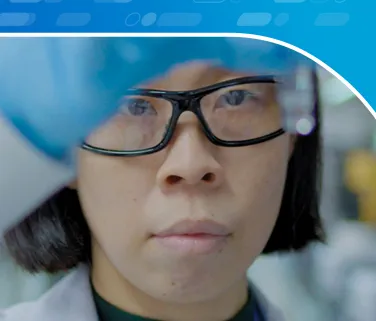

Amgen performed well in 2023, serving millions of patients around the world with our innovative, life-changing medicines; advancing many promising new first-in-class molecules in our pipeline; completing a significant acquisition that establishes us as a leader in treating rare diseases; and delivering strong financial performance. Our achievements last year favorably position Amgen to generate attractive growth through the end of the decade and beyond.
Total revenues in 2023 increased 7% from the prior year to $28.2 billion, with non-GAAP earnings per share1 rising 5% to $18.65. Demand for our medicines from patients and physicians was strong in 2023, resulting in 15% volume growth, partially offset by a 3% decline in net selling price. Eighteen medicines2 generated record sales in 2023, and nine had sales exceeding $1 billion. Product sales outside the U.S. were approximately $7.6 billion in 2023, up 8%, with especially strong growth coming from the Asia-Pacific region. We invested $4.8 billion in research and development in 2023, an increase of 8% from the prior year, to advance the broadest and deepest pipeline in our history.
Amgen delivered total shareholder return of 13% in 2023 and 232% over the past ten years, ahead of our peer set in both time frames. We increased our dividend per share by 10% in 2023 over 2022, the twelfth consecutive year of dividend increases.
Earnings Per Share1
Operating Margin1,4
Our performance last year included $954 million in sales3 associated with our acquisition of Horizon Therapeutics plc (Horizon), a leading provider of medicines to treat rare inflammatory diseases, which Amgen completed on October 6, 2023, for approximately $27.8 billion. I will say more below about the medicines we acquired in this transaction. Broadly, the acquisition reflects our ongoing commitment to pursuing the best innovation, inside our own labs and beyond. Over time, roughly half our sales have come from medicines discovered and developed internally, with the other half coming from therapies that we have sourced externally.
Four Therapeutic Pillars of Growth
Today, our portfolio is balanced across four therapeutic pillars of growth: General Medicine, Oncology, Inflammation, and now Rare Disease. In each pillar, we have numerous well-established medicines currently on the market around the world; new innovative treatments advancing through our pipeline; and biosimilars, either marketed or planned, that deliver savings to healthcare systems. Our success is not overly reliant on any one product or therapeutic area, and our presence in roughly 100 countries around the world gives us geographic balance as well.
Furthermore, at a time of intense pressure on drug pricing worldwide — which we don't expect to go away — we've built a portfolio that is designed to deliver growth through volume increases.
General Medicine
In our General Medicine business, sales of our cholesterol treatment Repatha® rose 26% from the prior year to $1.6 billion, with sales of our osteoporosis medicines EVENITY® and Prolia® increasing 47% to $1.2 billion and 12% to $4.0 billion, respectively.
In our pipeline for General Medicine, we are rapidly advancing potentially differentiated, early-stage treatments for obesity, the furthest along of which, maridebart cafraglutide, is currently being studied in a Phase 2 clinical trial. In a Phase 1 trial, maridebart cafraglutide demonstrated rapid, substantial, and sustained weight loss when administered monthly. It is estimated that more than 650 million people worldwide live with obesity, a complex disease with multiple underlying causes. Given the complexity of the disease, we believe that a variety of medicines will ultimately be needed to treat this patient population effectively.
Olpasiran is another promising new medicine in our General Medicine pipeline. Phase 2 data released in 2022 showed reductions in lipoprotein(a) — a type of "bad" cholesterol that is genetically determined and cannot be modified by diet or exercise — of as much as 95% in patients with established cardiovascular disease. We have rapidly enrolled thousands of patients around the world in a Phase 3 cardiovascular-outcomes trial for olpasiran, underscoring the medical community's strong interest in this medicine.
Oncology
Our Oncology business delivered sales of $9.2 billion in 2023. Sales of BLINCYTO®, a treatment for acute lymphoblastic leukemia, rose 48% in 2023 to $861 million. Sales of KYPROLIS® for multiple myeloma and Vectibix® for colorectal cancer grew 13% to $1.4 billion and 10% to $984 million, respectively, in 2023.
In our Oncology pipeline, Amgen was granted three Breakthrough Therapy Designations by the U.S. Food and Drug Administration (FDA) last year: for tarlatamab in small cell lung cancer; for BLINCYTO in early-stage acute lymphoblastic leukemia, and for LUMAKRAS®/LUMYKRAS™ in combination with Vectibix in colorectal cancer. The FDA is scheduled to complete its reviews of tarlatamab and BLINCYTO this year. New treatment options are very much needed for all three of these diseases. For example, there have been no new treatments for small cell lung cancer for decades, and the disease today has a five-year survival rate of just 3%.
Elsewhere in our Oncology pipeline, we are studying bemarituzumab for gastric cancer, which is the fifth-leading cause of cancer death worldwide and particularly prevalent in the Asia-Pacific region; and xaluritamig for prostate cancer, which is the second-leading cause of cancer death in American men.
Today Amgen offers high-quality biosimilars to some of the most-prescribed cancer treatments in the world, including MVASI® (a biosimilar to Avastin®5), KANJINTI® (a biosimilar to Herceptin®5), and RIABNI® (a biosimilar to RITUXAN®5). These three medicines together generated $1.1 billion in 2023 sales. Our Oncology pipeline includes a biosimilar to OPDIVO®,5 one of the largest-selling cancer medicines in history.
Inflammation
Amgen has been a leader in treating inflammatory diseases for decades. Sales in 2023 of TEZSPIRE®, a treatment for severe asthma, increased more than threefold in its second year on the market to $567 million. We are also studying TEZSPIRE in Phase 3 trials for chronic rhinosinusitis with nasal polyps and for eosinophilic esophagitis, and in a Phase 2 trial for chronic obstructive pulmonary disease, which is the world's third-leading cause of death.
Sales of our psoriasis treatment Otezla® declined 4% to $2.2 billion as we faced increased competition in the U.S. We expect future growth of Otezla to be driven by its well-established safety and efficacy profile, approved use in mild-to-moderate psoriasis, and ease of administration.
In our Inflammation pipeline, we anticipate Phase 3 data later this year from the first of eight trials studying rocatinlimab in moderate-to-severe atopic dermatitis in collaboration with our long-time partner, Kyowa Kirin Co., Ltd.
Sales of AMJEVITA®/AMGEVITA™, Amgen's biosimilar to HUMIRA®5 that is now available in markets around the world, rose 36% in 2023 to $626 million. In the U.S., we also offer AVSOLA®, a biosimilar to REMICADE®,5 and, in 2023, we received U.S. FDA approval for Wezlana™, a biosimilar to STELARA®.5
Rare Disease
In our new Rare Disease business, medicines acquired in the Horizon deal discussed above include TEPEZZA® for thyroid eye disease, a progressive and potentially vision-threatening disease that can cause symptoms such as eye bulging and double vision; KRYSTEXXA® for uncontrolled gout, which can lead to visible lumps under the skin, joint pain or stiffness, and damage to joints and bones; and UPLIZNA® for neuromyelitis optica spectrum disorder, an inflammatory disease that most often affects the optic nerves and spinal cord.
TEPEZZA, KRYSTEXXA, and UPLIZNA are all very early in their life cycles and — by leveraging Amgen's extensive global presence, world-class biologics capabilities, and extensive experience in inflammation — we believe they have the potential to reach more patients around the world. Toward that end, we are pursuing launches in new geographic markets, new indications, and/or new formulations to expand the impact of each of these medicines.
TAVNEOS®, acquired in 2022, treats anti-neutrophil cytoplasmic autoantibody (ANCA)-associated vasculitis, an autoimmune disease that leads to the inflammation and eventual destruction of small blood vessels in vital organs such as the kidneys. Since we completed the acquisition, the number of patients who have been prescribed TAVNEOS has more than doubled, and we see opportunity for continued growth.
In our Rare Disease pipeline, we are currently enrolling patients in a Phase 3 clinical trial for dazodalibep in Sjögren's disease, an autoimmune disorder in which the immune system attacks the glands that make moisture in the eyes, mouth, and other parts of the body. We are also enrolling Phase 2 trials for fipaxalparant in idiopathic pulmonary fibrosis, a condition in which the lungs become scarred and breathing becomes increasingly difficult, and in diffuse cutaneous systemic sclerosis, which can cause skin hardening and problems in many organs of the body.
We also have two biosimilars in the Rare Disease space. Approved in Europe and under regulatory review in the U.S., BKEMV™/BEKEMV™ is a biosimilar to SOLIRIS®,5 which treats generalized myasthenia gravis, a disease that impacts the neuromuscular system. Our biosimilar to EYLEA®5 is under regulatory review in the U.S. as a treatment for wet age-related macular degeneration.
You can find more information about our approved medicines at www.amgen.com/products.
To learn more about our pipeline, please visit www.amgenpipeline.com.
Accelerating Innovation
At a time when a rapidly aging global population needs more innovation, the convergence of "biotech" and "tech" is enabling Amgen to innovate with greater speed, confidence, and efficiency — an incredibly exciting moment for which we have been preparing for over a decade.
In 2012, for example, we had accumulated detailed genetic and health information from approximately 100,000 people, all from Iceland, which has one of the world's most homogenous populations. Today, we have such information from more than 3 million volunteers from around the world — and new technologies are enabling us to quickly derive powerful insights from this massive amount of data, which help guide our research and development work.
To give another example, in the past, we have built biologic medicines using proteins that naturally occur in the human body, a process involving multiyear cycles in which we engineered and tested numerous prototypes before moving a single molecule into clinical trials. Nevertheless, these protein-based medicines often behaved unpredictably, failing to achieve the desired outcome or yielding unacceptable side effects. Today, using artificial intelligence and machine learning, we can design proteins from scratch that are more suitable to be made into drugs than those found in nature — potentially enabling us to move faster and with a higher likelihood of success.
To ensure that we are fully capitalizing on new technologies — not just in R&D, but across the entire company — we tapped Dr. David Reese in late 2023 to become Amgen's first-ever chief technology officer. Dr. Reese, a physician-scientist, has been with Amgen for nearly 20 years and has led our R&D organization since 2018, spearheading the development of the robust pipeline we possess today.
Dr. James "Jay" Bradner is our new head of R&D and chief scientific officer. Dr. Bradner is also a physician-scientist and a seasoned R&D leader, having previously served as president of the Novartis Institutes for BioMedical Research. He also has served as a faculty member at Harvard Medical School and, immediately prior to joining Amgen, was a practicing oncologist at the Dana-Farber Cancer Institute.
I'm excited by the work that Dave, Jay, and the rest of our team will do together to use technology to accelerate innovation at Amgen for the good of patients and the long-term growth of our business.
Supporting Our People
Technology is only as good as the people who use it — and I believe that Amgen's people are the best in the business. We regularly survey our employees and they consistently tell us that they are passionate about our Mission to serve patients, know the Company's priorities, and understand the role they play as individuals in helping Amgen as a whole succeed.
While we are pleased to be named to numerous "best" lists — including Forbes magazine's list of "America's Best Large Employers" and Glassdoor's ranking of the "100 Best Large Places to Work in the United States" — we take nothing for granted and are always looking for ways to improve.
Last year, for example, in response to feedback from employees looking for greater career development opportunities, we launched the Talent Marketplace, where employees can be matched with opportunities at Amgen that best fit their skills and interests. Today, more than 9,000 employees worldwide are active participants in the Talent Marketplace.
Inspiring the Next Generation of Innovators
Having the best employees today is critical, but we also want to nurture and inspire the next generation of innovators — especially in the wake of learning losses due to the COVID-19 pandemic and growing societal skepticism about science.
Guided by the belief that everyone needs science and science needs everyone, the Amgen Foundation has invested nearly $270 million over more than 30 years to provide best-in-class, no-cost science education programs that now reach approximately 25 million students annually around the world.
In 2023, the Amgen Foundation announced a new investment of more than $12 million to expand the Amgen Biotech Experience (ABE), a free science education program that has provided nearly a million high school students globally with hands-on biotech experiences. The new funding will be used to bring ABE to communities in Brazil, Mexico, and South Africa, with the goal of reaching an additional 180,000 students over the next two years.
Last year, the Amgen Foundation also committed over $8 million in new funding to the Amgen Scholars Program, an undergraduate summer research experience hosted at premier educational institutions around the world. More than 5,300 students have completed the program to date, and this new investment will enable an additional 500 students to participate over the next two years.
You can learn more about our commitment to good corporate citizenship at www.amgen.com/responsibility.
A Future of Opportunity
This is an exciting time to be at Amgen. Thanks to the hard work, commitment, and ingenuity of our approximately 27,000 employees globally, we are well positioned to serve millions more patients suffering from some of the world's most serious diseases — and, by so doing, to create significant value over the long term for you, our shareholders.
On behalf of Amgen's board of directors, our senior leadership team, and our employees around the world, I thank you for your ongoing support of our Company and the important work we do.

Robert A. Bradway
Chairman and Chief Executive Officer
March 21, 2024
Stories From 2023

Overcoming Stereotypes
Raul Lazaro (pictured) is a researcher at Amgen whose love for science helped him to overcome the stereotypes that some might attach to a son of migrant workers from Mexico. He now shares his story with young people as a volunteer with the Amgen Biotech Experience (ABE), a program that uses hands-on experiments to inspire the next generation of innovators.
"In some communities, you're told that your options are limited," Lazaro says. "You have a picture of a scientist in your head, and they don't look like you. With ABE, I get to show students how working in science can change your life."
Linda Ohlrich, a teacher at Rio Mesa High School in Southern California, says, "I have students in my Biology class from a diverse set of backgrounds, with several from families living below the poverty line. Raul was able to show my students that you can work in science regardless of where you come from. Put a micropipette in your hand, and you never know where it will lead you."

Restarting the Music
Thomas (pictured) heard the calling to become a musician in 1964 when, as a middle schooler, he saw the Beatles perform on The Ed Sullivan Show. More than 40 years later, uncontrolled gout stole his ability to play guitar when his fingers swelled severely from the buildup of uric acid crystals.
"My fingers would lock in place over a chord ... you obviously cannot play guitar that way," he says. "I became depressed. I was in a really dark place."
Thomas' passion for music returned in full force after he began treatment with KRYSTEXXA, a medicine designed to break up crystalized uric acid deposits. The medicine is now part of Amgen's Rare Disease business following the 2023 acquisition of Horizon.
"I remember the day I got my first treatment: September 28, 2022," he says.
Changes in his hands and fingers weren't far behind. The swelling went down. The pain subsided. Dexterity returned. The improvement was steady, he says, as he continued to receive an infusion every two weeks.
"Because KRYSTEXXA makes it possible to play again, I can take hold of life once more," he says. "There aren't adequate words to articulate what being able to play guitar again after so long has added to my life."
Hearing From Patients Around the World
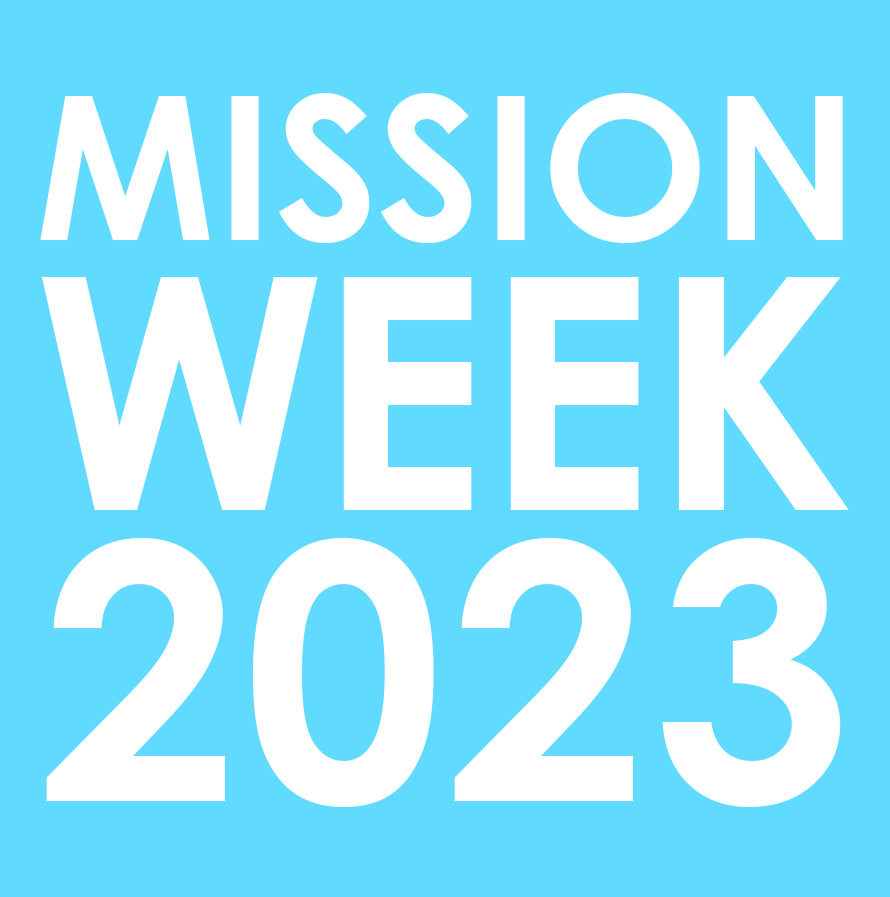
"Because of the work you do here," she said, "my granddaughters get to know me personally instead of someone showing them photos and videos and speaking about me in the past tense."
Bahija, a patient advocate and leukemia survivor, spoke to a gathering of Amgen employees in Munich. "Your passion, your dedication, and your tireless efforts — it matters," she said.
More than 10,000 employees around the world either attended live or tuned in virtually to a patient panel, with nearly 95% saying afterward that the events of the week gave them motivation to better serve patients and an improved understanding of the pressing issues patients face.

Employees celebrated Mission Week at Amgen's world headquarters in Thousand Oaks, CA.
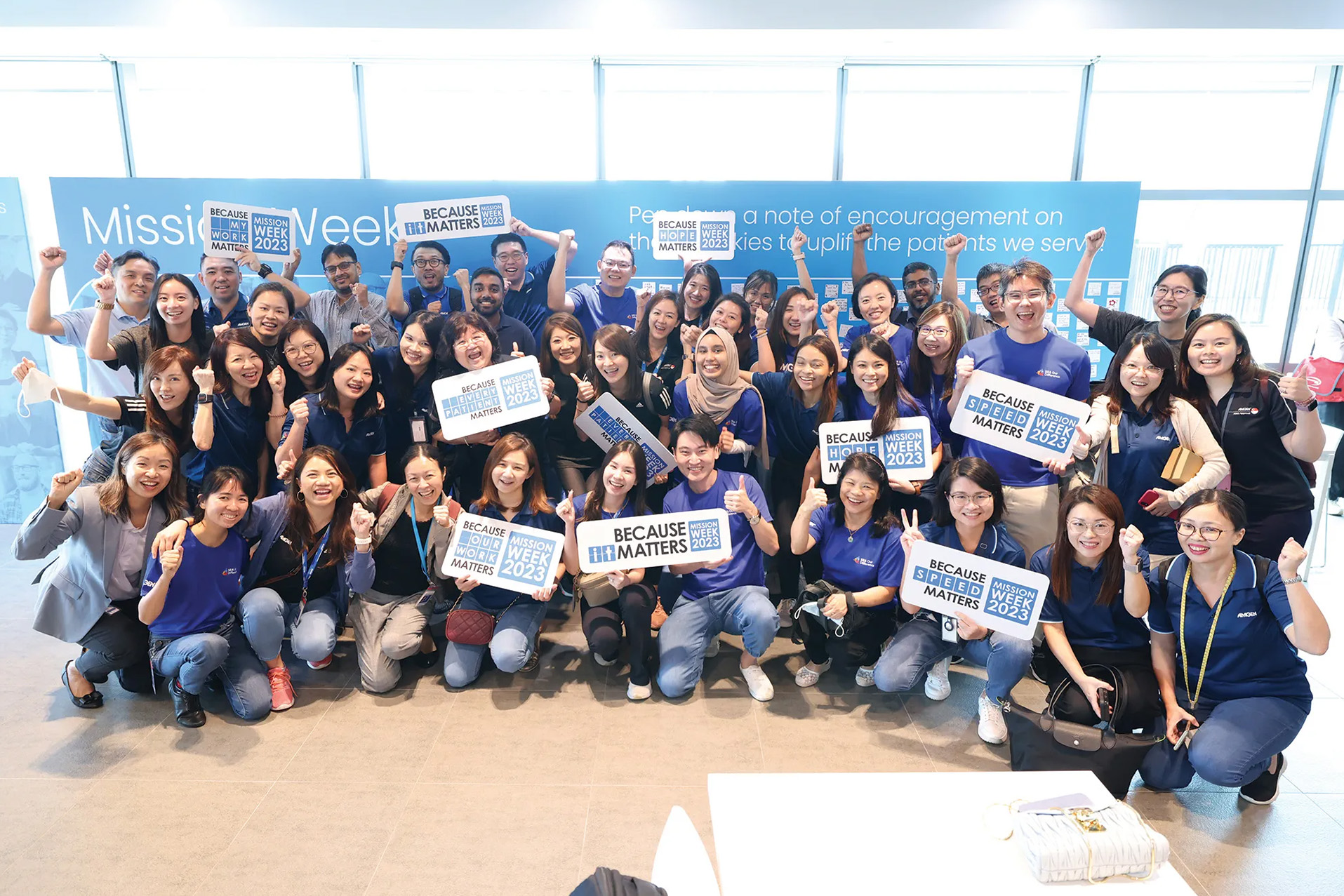
Employees celebrated Mission Week at Amgen's headquarters in Singapore.

Ryan (left) is living with acute lymphoblastic leukemia, while Lorenda (right) lives with ANCA-associated vasculitis.

Magdalene is living with cardiovascular disease.
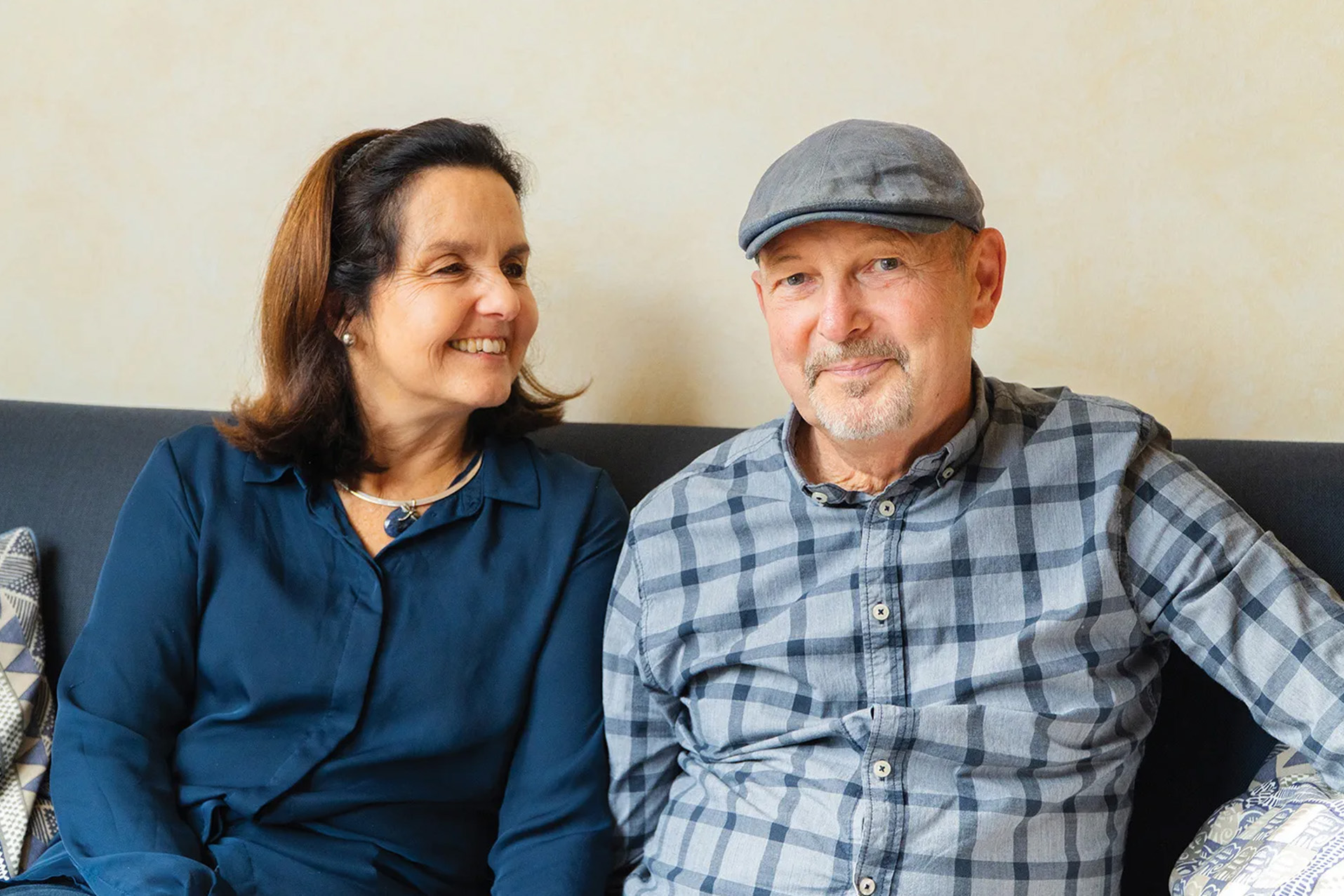
Jürgen (shown above with his wife, Diane) lives with myeloma.
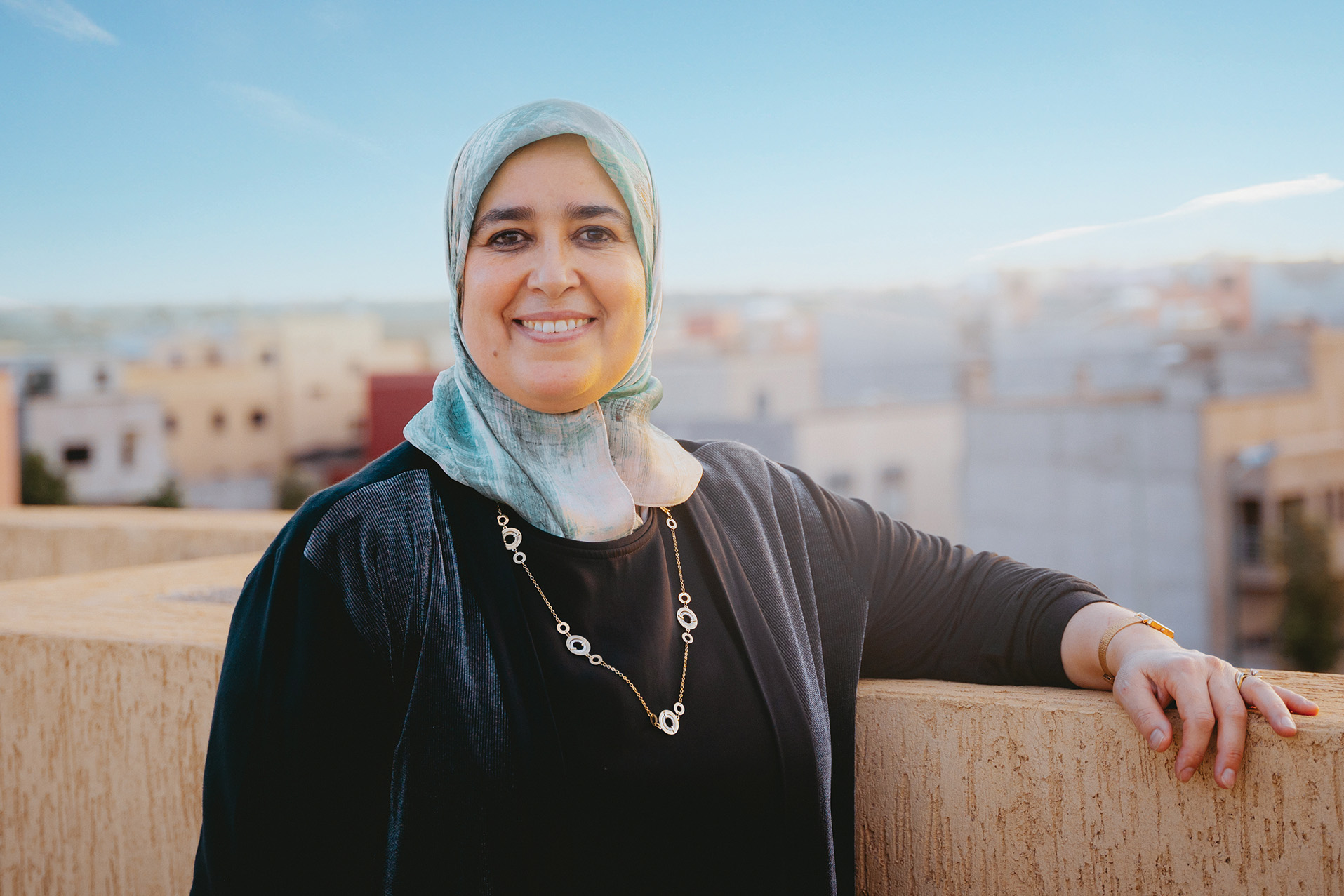
Bahija is a leukemia survivor.
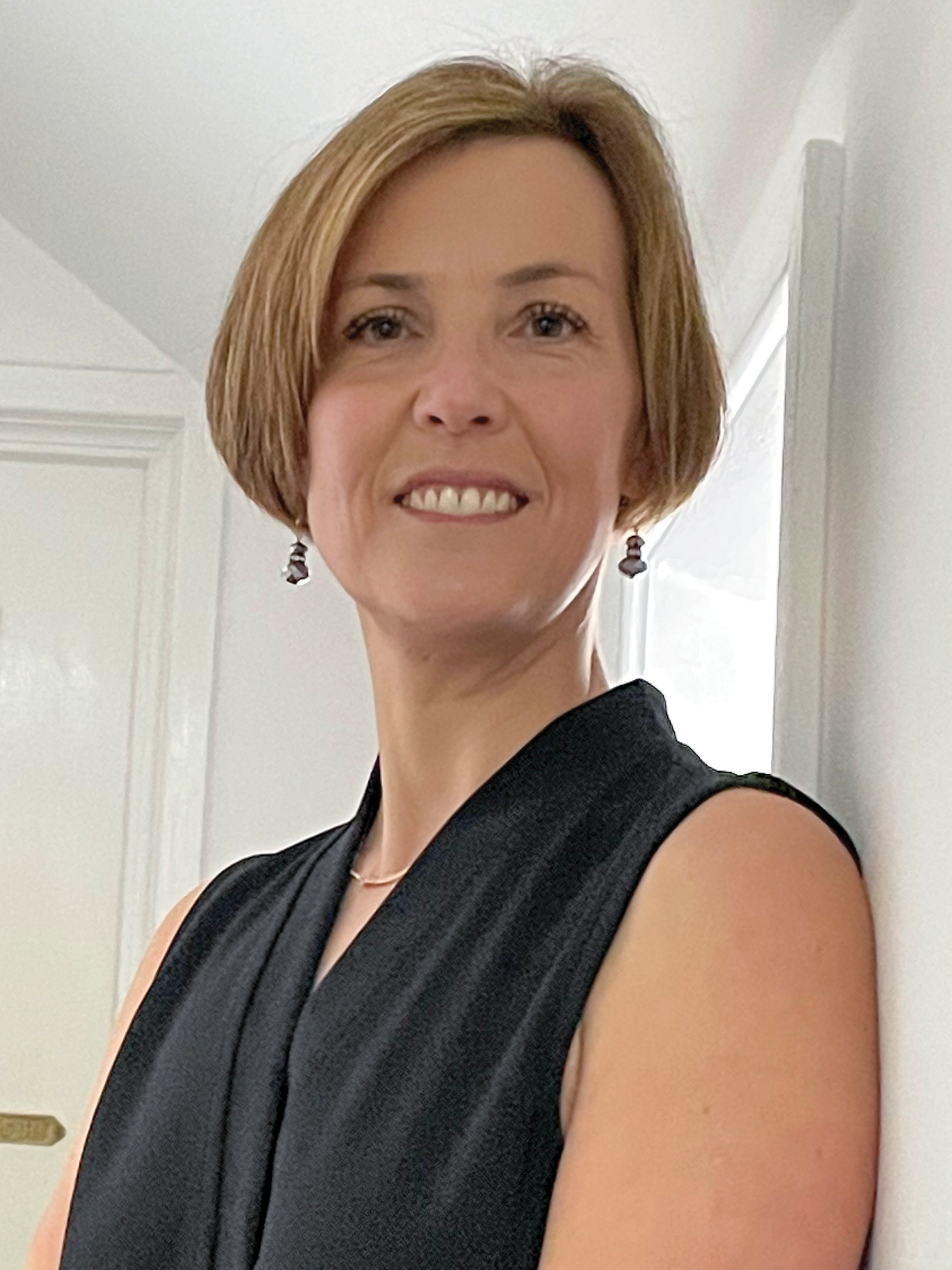
Fostering Career Development
Like many Amgen employees, Gillian Winstanley (pictured) is innately curious and always looking for opportunities to do new things and build new skills. So when Amgen launched a new Talent Marketplace to match interested employees with short-term, project-based opportunities, Winstanley was one of the first to give it a try.
"I wanted to learn more aspects of the business and how to think strategically and test my decision-making skills," says Winstanley, who works in Global Safety for Amgen in Canada and has now taken on three projects via the Talent Marketplace. "I received a much broader view of the organization, expanded my network, and learned about functions that I didn't even know existed."
Amgen launched the Talent Marketplace using employee feedback to help people at all levels of the organization build and strengthen their skills to meet the changing needs of the business, and connect with global opportunities across the company.

Celebrating Diverse Scientists
In 2023, a new mural was installed at Amgen headquarters, highlighting a diverse range of scientists who have made significant contributions to drug discovery and development.
"I imagined what it might mean to create a new scientist wall here at Amgen, one that more fully reflects our community," said principal scientist Sarah Van Driesche (above), who initiated the mural effort.
When the idea was presented to Dr. David Reese, Amgen's chief technology officer, his reaction was simple: "We have to do this."
Among those featured on the mural are Fu-Kuen Lin, whose breakthrough research paved the way for Amgen's first medicine, and David Baltimore, a long-time Amgen board member and Nobel Prize winner.
- Non-GAAP financial measure. See reconciliations to U.S. generally accepted accounting principles (GAAP) accompanying this letter.
- Includes product sales for the full year 2023 from UPLIZNA®, KRYSTEXXA®, and RAVICTI® in connection with the Horizon acquisition.
- Product sales between October 6, 2023, and December 31, 2023.
- Non-GAAP operating margin is calculated as a percentage of product sales.
- Avastin is a registered trademark of Genentech, Inc.
Herceptin is a registered trademark of Genentech, Inc.
RITUXAN is a registered trademark of Biogen MA Inc.
OPDIVO is a registered trademark of Bristol-Myers Squibb Company.
HUMIRA is a registered trademark of AbbVie Biotechnology Ltd.
REMICADE is a registered trademark of Janssen Biotech, Inc.
STELARA is a registered trademark of Johnson & Johnson.
SOLIRIS is a registered trademark of Alexion Pharmaceuticals, Inc.
EYLEA is a registered trademark of Regeneron Pharmaceuticals, Inc.


